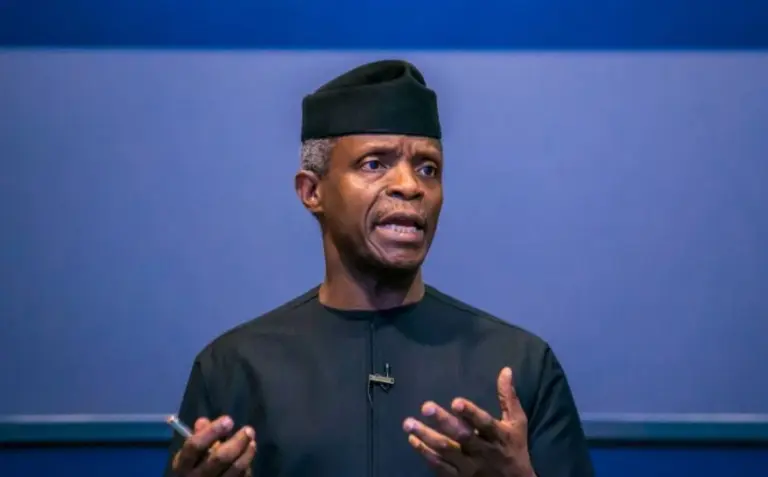Former Vice President Prof. Yemi Osinbajo has made a clarion call for greater civic engagement among Nigerians, particularly youth and Christians, emphasizing that active participation in politics is vital to shaping the country’s leadership and societal development.
Speaking at the 2nd Annual Daniel Taiwo Odukoya Memorial Lecture held at The Fountain of Life Church in Lagos, Osinbajo used his keynote address to challenge apathy toward politics. Themed “The Evolving Relationship Between the Church and the Government in Nigeria,” the event brought together thought leaders, clergy, policymakers, and aspiring young change-makers to examine the dynamic role of faith in governance.
“Politics has acquired a bad name, not just in Nigeria, but across the world,” Osinbajo acknowledged. “But the truth is, there is no other way to influence a nation except by engaging in the political process.”
He stressed that choosing not to participate means surrendering the right to critique the outcomes of governance. “If we are not involved in choosing leaders, shaping policy, or participating in political parties, then we forfeit our right to complain when outcomes don’t reflect our values.”
Addressing Nigeria’s younger generation, Osinbajo underscored the importance of intellectual preparation and strategic vision. He urged aspiring public servants to deepen their understanding of governance, economic systems, healthcare, and education—particularly within the African context.
“It’s not enough to have passion. Without preparation, you’ll produce no meaningful results,” he warned. “Many people enter politics unprepared and end up achieving nothing. Leadership demands more.”
For Christian believers, Osinbajo emphasized the importance of serving with moral clarity and purpose. “When I speak of a Christian, I mean someone who serves not man, but God,” he said. “Your service in politics or governance must reflect humility, diligence, and a commitment to justice.”
He also challenged the Church to reclaim its moral authority by embodying transparency, integrity, and compassion. “The gospel must not be reduced to motivational speaking or prosperity doctrine. It must focus on giving to the poor, living with integrity, and pursuing justice.”
Drawing from his personal experience, Osinbajo revealed he lived modestly for much of his early career, only owning his first house at age 51 and driving a brand-new car years after his graduation. This, he noted, reflected a life of purpose over material pursuit.
Osinbajo concluded by asserting that Nigeria is not beyond redemption, but change requires principled, informed citizens to step forward and lead with vision. “The teachings of Jesus Christ shaped the development of Western societies,” he said. “Nigeria’s transformation will come when people with moral conviction actively engage the political system.”
In her welcome remarks, Dr. Tobi Enuwa, daughter of the late Pastor Taiwo Odukoya, highlighted her father’s unwavering belief in leadership that integrates both spiritual and civic responsibility. “He believed true leadership must be both spiritual and civic,” she said. “And he consistently urged Christians to contribute meaningfully to nation-building.”
The lecture served as a call to action—urging Nigerians to move from observation to involvement, and from aspiration to action, in the collective quest to reshape the nation.

